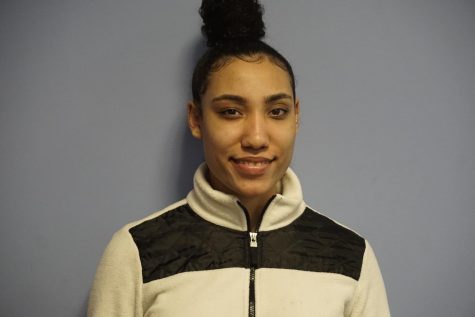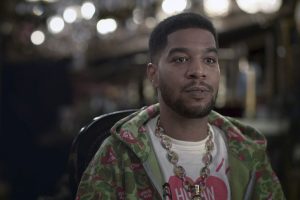Jewish-Christian organization recognizes Holocaust victims
May 4, 2019
The Brother John G. Driscoll Professorship in Jewish-Catholic Studies hosted a Holocaust memorial along with the annual William H. Donat Shoah Commemoration lecture on April 29 in Burke Lounge.
This year’s lecture, titled “Why? Explaining the Holocaust,” was given by Dr. Peter Hayes, the chair of the academic committee at the United States Holocaust Memorial Museum and a professor at Northwestern University.
The event began with a short memorial honoring the victims of the Holocaust. The memorial was led by former Chair of the Council of Centers on Jewish-Christian Relations and Professor of Religious Studies Dr. Elena G. Procario-Foley and some of her students.
In memory of the survivors and the victims, Procario-Foley and her students quoted excerpts from memoirs of Holocaust survivors as well as lit candles.
This was followed by a spotlight remembrance of the Donat family. William Donat was a Holocaust survivor and endured the horrors of the Warsaw Ghetto.
“Those of you that come to my program of the event of the past and looking up at the slides know that Bill Donat was a very cherished friend of mine who helped me educate years and years of Iona College students,” Procario-Foley said.
Procario-Foley proceeded to honor the heroes of the Holocaust and asked them to stand.
“The heroes are not just the resisters, the heroes are the people that survived, made new families and contributed to the world to make it a better place like the Donat family and so many others,” Procario-Foley said.
The granddaughter of the Donat family shared some words about her pride in coming from a family of Holocaust survivors.
“From a young age, my grandfather instilled in me, ‘never forget,’” she said. “He dedicated much of his life to this principle and frequently gave lectures of his family of survivors. He taught that just as we ‘never forget,’ we would remember the horror that humanity is capable of. It also means remembering the heroes.”
Procario-Foley believes that a lot could be learned from the Holocaust over 70 years later.
“I always want listeners to come away with a renewed determination to fight for justice and never to be a bystander,” Procario-Foley said. “As Dr. Hayes explained, one of the reasons for the success of the Holocaust is because people always seemed to have a more important concern. We can’t allow apathy for the other person to persist. To paraphrase Elie Wiesel’s Nobel Prize acceptance speech, ‘whenever men or women are persecuted because of their race, religion, or political views, that person must become the center of our attention.’”
The lecture led by Hayes began shortly after the memorial. The lecture described the events leading to the Holocaust and provided an explanation as to why such an event could have happened.
According to Hayes, the Holocaust is not an unfathomable event and can be easily explained.
“The Holocaust is as explicable as any event in history,” he said. “If you can explain the French Revolution, then you can explain the Holocaust.”
Hayes began his lecture by explaining why the Jewish population became scapegoats, then explained that the Nazis eased into power through the use of clever language and manipulation.
The lecture concluded with a Q&A session. Many audience members wanted to know more about what could have been done to avoid the Holocaust.
Procario-Foley believes that the event could be tied to the celebration of Iona’s Catholic identity because of the fact that Christianity comes from Judaism.
“The Holocaust is a Catholic event because it is a human event,” Procario-Foley said. “Everyone needs to learn from the tragedy of the Holocaust. Christianity derives from Judaism, yet the overwhelming number of the perpetrators of the Holocaust were baptized Christians. We must try to understand this fact.”








